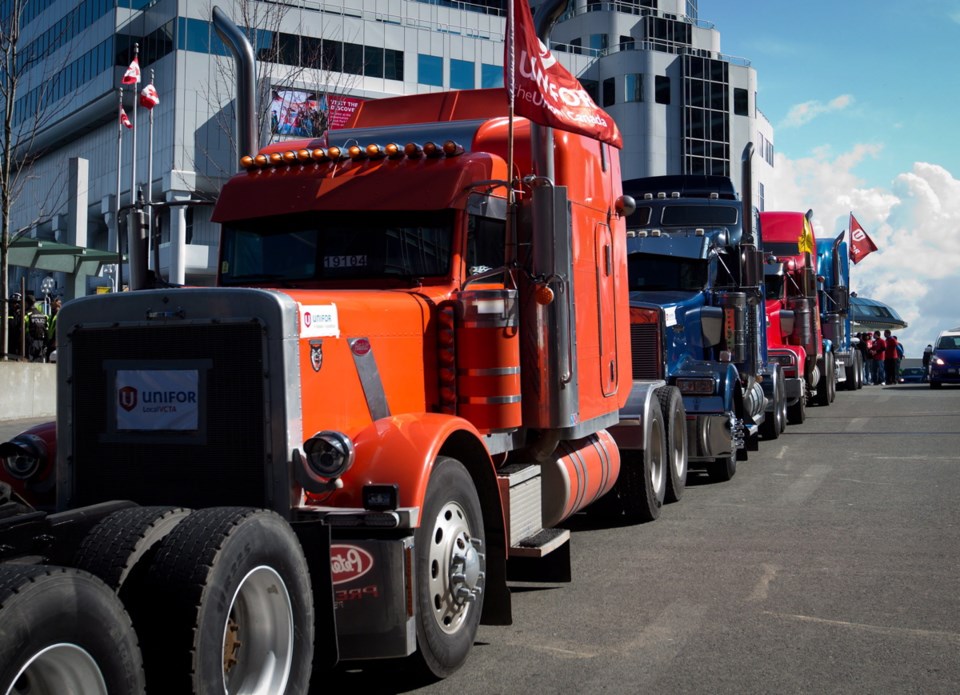Unionized truckers on strike at Vancouver’s normally busy shipping container terminals could face fines of up to $400 a day if they don’t return to their jobs once back-to-work legislation passes through the British Columbia legislature later this week.
The provincial government followed through with its promise to table back-to-work legislation for unionized truckers, introducing a bill Monday that also includes potential fines of up to $2,500 a day for union officers and $10,000 a day for the union itself, as well as their employers.
The legislation, which calls for a 90-day cooling off period, only applies to the 250 unionized truckers at Port Metro Vancouver, Canada’s largest port. More than 1,000 non-unionized truckers have also walked off the job.
“We introduced legislation today, reluctantly,” said B.C.’s labour minister Shirley Bond. “Today is about the economy — not just in B.C., but about Canada. I’m starting to receive letters from producers, shippers, importers, exporters. They want their goods moving and so do we.”
The strike has affected the port’s four container terminals in the Vancouver area. At its peak, the port said the strike was affecting $885 million worth of goods per week, though the situation has improved in the past week as truck traffic increased.
Non-union truckers walked off the job late last month, and several hundred Unifor members joined them March 10. They’re demanding shorter wait times at the port and standardized rates of pay across the sector to prevent allegations of undercutting.
Bond said the back-to-work legislation applies only to the union truckers.
“This is the least interventionist we can be,” she said. “It really says, ‘You need to go back to work.’ ”
Union spokesman Gavin McGarrigle said members are losing money under their current agreements and feel they have little to lose if they stay on strike.
“They’ve got to put fuel in their trucks and they are telling us they just don’t have anywhere to go anymore so … at this stage, it’s going to be business as usual and they’ll continue to protest,”said McGarrigle, who was at the legislature when the back-to-work law was tabled.
Last week, the government put forward a 14-point plan to try to address the trucker’s concerns. The proposal included a 10 per cent rate increase within 30 days and compensation for wait times, but the truckers said it wasn’t enough.
McGarrigle said it’s possible tweaks to the plan in favour of the union and giving mediator Vince Ready the ability to make binding recommendations could spark a settlement without the need for legislation.
Opposition New Democrat Leader Adrian Dix said his party would likely oppose the legislation.
Dix said the government is bullying truckers, who he described as small business people, by allowing the port to threaten to take away licence privileges.
Last week, the port announced truckers whose licences are set to expire in March and April won’t have them renewed if they haven’t returned to work.



